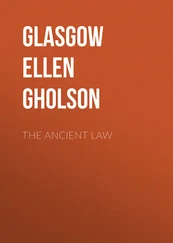Ellen Glasgow - The Builders
Здесь есть возможность читать онлайн «Ellen Glasgow - The Builders» — ознакомительный отрывок электронной книги совершенно бесплатно, а после прочтения отрывка купить полную версию. В некоторых случаях можно слушать аудио, скачать через торрент в формате fb2 и присутствует краткое содержание. Жанр: foreign_antique, foreign_prose, на английском языке. Описание произведения, (предисловие) а так же отзывы посетителей доступны на портале библиотеки ЛибКат.
- Название:The Builders
- Автор:
- Жанр:
- Год:неизвестен
- ISBN:нет данных
- Рейтинг книги:5 / 5. Голосов: 1
-
Избранное:Добавить в избранное
- Отзывы:
-
Ваша оценка:
- 100
- 1
- 2
- 3
- 4
- 5
The Builders: краткое содержание, описание и аннотация
Предлагаем к чтению аннотацию, описание, краткое содержание или предисловие (зависит от того, что написал сам автор книги «The Builders»). Если вы не нашли необходимую информацию о книге — напишите в комментариях, мы постараемся отыскать её.
The Builders — читать онлайн ознакомительный отрывок
Ниже представлен текст книги, разбитый по страницам. Система сохранения места последней прочитанной страницы, позволяет с удобством читать онлайн бесплатно книгу «The Builders», без необходимости каждый раз заново искать на чём Вы остановились. Поставьте закладку, и сможете в любой момент перейти на страницу, на которой закончили чтение.
Интервал:
Закладка:
"Angelica! It is a lovely name," she mused, seizing upon the one charming thing in Mrs. Colfax's description, "I wonder what she is like?" Fair, graceful, suffering, she saw this unknown woman against the background of the unhappy home, in an atmosphere of mystery and darkness. "She must be weak," she thought. "If she were not weak, she would not let him hurt her." And she longed to pour some of her own strength of will, her own independence and determination and philosophy, into the imaginary figure of Mrs. Blackburn. "It may be that I can help her. If I can only help her a little, it will all be worth while."
She tried presently to think of other things – of the caps she must finish, of the uniforms she had intended to make during her vacation, of the piece of white lawn she must cut up into kerchiefs, of the mending she would ask the girls to do for her before they went to bed. There was so much to occupy her time and her thoughts in the one evening that was left to her – yet, do what she would – look where she pleased – the sweet veiled image of Mrs. Blackburn floated to her through the twilight, up the long, dim road and round the bend in the avenue – as if this stranger with the lovely name were the "something different" she had waited for in the past. By a miracle of imagination she had transferred this single character into actual experience. The sense of mystery was still there, but the unreality had vanished. It was incredible the way a woman whose face she had never seen had entered into her life. "Why, she is more real than anything," she thought in surprise. "She is more real even than the war."
For the war had not touched her. She stood secure, enclosed, protected from disaster, in her little green corner of southside Virginia. Her personal life had not been overpowered and submerged in the current of impersonal forces. The age of small things still surrounded her – but the quiver and vibration of great movements, of a world in dissolution, the subdued, insistent undercurrent of new spiritual energies in action – these were reaching her, with the ebb and flow of psychological processes, as they were reaching the Virginia in which she lived.
The world was changing – changing – while she went toward it.
CHAPTER II
The Time
AT midnight, when she was alone in her room, Caroline's mind passed from an intense personal realization of the Blackburns to a broader conception of the time in which she was living – the time which this generation had helped to create, and which, like some monster of the imagination, was now devouring its happiness. She thought of her father – a man of intellectual abilities who had spent his life out of touch with his environment, in an uncongenial employment. Young as she was when he died, she had been for years the solitary confidant of his mind, for he also, like these strangers into whose lives she was about to enter, had been the victim of the illimitable and inscrutable forces which shape the thought of an age. He had been different from his generation, and because he had been different, it had destroyed him. Yet his single idea had outlived the multitudinous actions and reactions that surrounded him. He saw not to-day, but to-morrow; and though he was of another mettle from this Blackburn of whom she had been reading, he appeared now in her fancy to take a place beside him in the vivid life of the age.
The lamp was smoking, and after lowering the wick, she sat gazing into the darkness beyond the loosened shutters, which rattled when the wind shook them.
It was in the early autumn of nineteen hundred and sixteen, the moment in history when America, hesitating on the verge of war, discovered that it was no longer an Anglo-Saxon nation; that, in spite of its language and literature, its shell of customs and traditions, a new race had been created out of a complicated mass of diverse interacting sympathies, prejudices, attractions, and repulsions. Confronted now with problems demanding a definite expression of the national will, it became evident that the pioneer stock had undergone profound modifications, and that from a mingling of many strains had been born an emphatic American spirit, with aspirations essentially different from those of the races from which its lifeblood was drawn. In the arrogant vigour of youth this spirit resented any disposition on the part of its kindred to dictate or even influence its policy or its purpose.
For two years Europe had been at war. The outbreak of the struggle had come as a distant thunderbolt to a nation unaccustomed to threatening armies, and ignorant of the triumphant menace of military ideals; and stunned by a calamity which it had believed impossible, America had been inclined at first to condemn indiscriminately those who had permitted the disaster for apparently insignificant causes. There was sympathy with Belgium because it had been destroyed; with France because it had been invaded; and with England because it had worked sincerely in the interests of peace; but as early as the autumn of nineteen hundred and sixteen this sympathy was little more than uncrystallized sentiment. To the people the problem was irrelevant and disguised in words. For a century they had been taught that their geographical isolation was indestructible, and that European history concerned them only after it had been successfully transmuted into literature. The effect of these political illusions had been accentuated by the immediate demands upon the thoughts and energies of the nation, by the adventure of conquering a rich and undeveloped continent, and by the gradual adjustment of complex institutions to a rapidly expanding social and economic life. Secure in its remoteness, the country had grown careless in its diplomacy. Commerce was felt to be vital, but foreign relations were cheerfully left to the President, with the assumption that he was acting under the special guidance of Providence, on those memorable occasions when he acted at all. With the sinking of the Lusitania , the spirit of the country had flamed into a passionate demand for redress or war. Then the indignation had been gradually allayed by diplomatic phrases and bewildering technicalities; and the masses of the people, busy with an extravagant war prosperity, resigned international matters into the hands of the Government, while, with an uneasy conscience but genuine American optimism, they continued actively to hope for the best.
To an aërial philosopher the Government of the hour might have appeared a composite image of the time – sentimental, evasive of realities, idealistic in speech, and materialistic in purpose and action. Dominated by a single strong intellect, it was composed mainly of men who were without knowledge of world questions or experience in world affairs. At the moment war was gathering, yet the demand for preparation was either ignored or ridiculed as hysteria.
As the national elections approached both parties avoided the direct issue, and sought by compromise and concession to secure the support of the non-American groups. While the country waited for leadership, the leaders hesitated in the midst of conflicting currents of public sentiment, and endeavoured to win popularity through an irresolute policy of opportunism. To Virginians, who thought politically in terms of a party, the great question was resolved into a personal problem. Where the President led they would follow.
From the beginning there had been many Americans who looked beneath the shifting surface of events, and beheld in this war a challenge to the principles which are the foundation-stones of Western civilization. They realized that this was a war not of men, not of materials, but of ideals – of ideals which are deeper than nationality since they are the common heritage of the human race. They saw that the ideals assailed were the basis of American institutions, and that if they should be overthrown the American Republic could not endure. As in the seventeenth and eighteenth centuries the problems of European civilization were fought out in the forests of America, so to-day, they felt, the future of America would be decided on the battlefields of Europe. The cause was the cause of humanity, therefore it was America's war.
Читать дальшеИнтервал:
Закладка:
Похожие книги на «The Builders»
Представляем Вашему вниманию похожие книги на «The Builders» списком для выбора. Мы отобрали схожую по названию и смыслу литературу в надежде предоставить читателям больше вариантов отыскать новые, интересные, ещё непрочитанные произведения.
Обсуждение, отзывы о книге «The Builders» и просто собственные мнения читателей. Оставьте ваши комментарии, напишите, что Вы думаете о произведении, его смысле или главных героях. Укажите что конкретно понравилось, а что нет, и почему Вы так считаете.












